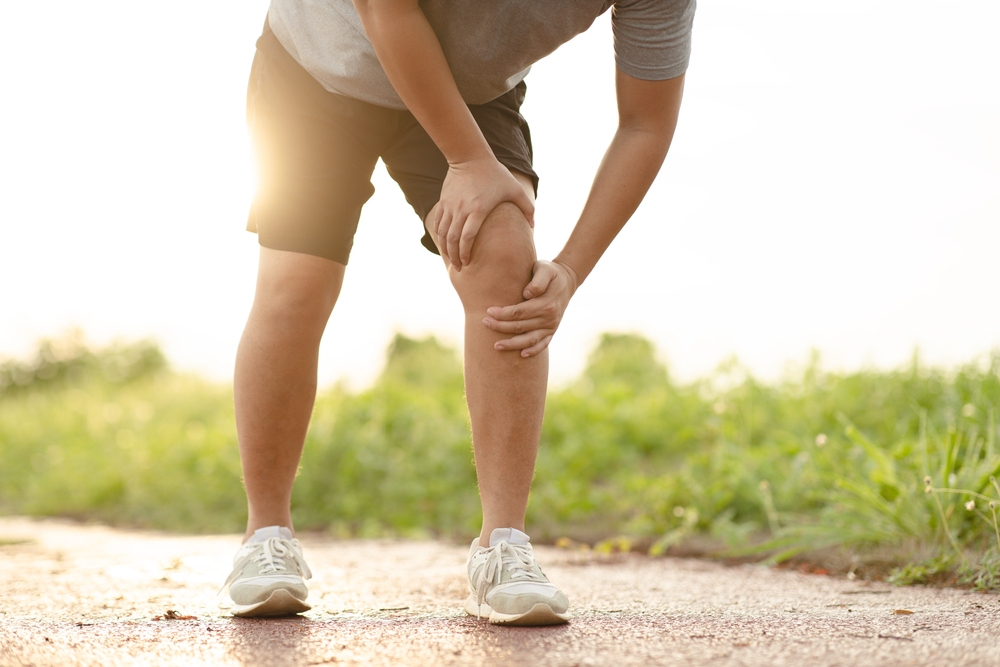
Ignoring knee pain can lead to further deterioration and complications. Early intervention is crucial for managing your condition effectively and preventing it from worsening. By addressing the underlying cause of your knee pain, you can take proactive steps to alleviate your symptoms, improve your mobility, and maintain an active, healthy lifestyle.
Causes and Symptoms of Knee Pain
Your knees are essential for everyday movement and mobility, but when they're in pain, it can significantly impact your quality of life. Knee pain can arise from a variety of causes, including:
- Arthritis (osteoarthritis or rheumatoid arthritis)
- Injury (e.g., sprains, strains, or tears)
- Overuse or repetitive strain
- Structural issues (e.g., misalignment, instability)
- Underlying medical conditions
The symptoms of knee pain can range from mild discomfort to severe, debilitating pain. You may experience:
- Aching or throbbing sensations
- Stiffness and reduced range of motion
- Swelling or inflammation
- Instability or "buckling" of the knee
- Difficulty with weight-bearing activities like walking or climbing stairs
Ten Do's for Knee Pain
1. Stay Active with Low-Impact Exercises: Engage in activities like swimming, cycling, or walking to keep the knee joints moving without causing excessive strain.
2. Maintain a Healthy Weight:Reducing excess weight can significantly decrease the stress on your knees, alleviating pain and preventing further injury.
3. Strengthen Surrounding Muscles: Focus on exercises that build the muscles around your knee, such as quadriceps and hamstrings, to provide better support and stability.
4. Practice Proper Posture: Ensure good posture during activities and while sitting to reduce unnecessary pressure on your knees.
5. Use Ice and Heat Therapy: Apply ice to reduce inflammation and numb the pain, and use heat to relax and soothe stiff muscles around the knee.
6. Wear Supportive Footwear: Choose shoes with good arch support and cushioning to reduce the impact on your knees during daily activities.
7. Incorporate Stretching: Regularly stretch the muscles around your knee to maintain flexibility and reduce the risk of injury.
8. Consider Chiropractic Care: A chiropractor can provide personalized exercises and treatments to strengthen your knee and alleviate pain.
9. Use Knee Braces or Supports: Wearing a knee brace or support can provide additional stability and prevent further injury during physical activities.
10. Consult a Healthcare Professional: If knee pain persists, seek advice from a doctor or specialist to determine the underlying cause and appropriate treatment options.
Ten Don'ts for Knee Pain
1. Avoid High-Impact Activities: Steer clear of exercises like running, jumping, and other high-impact sports that can exacerbate knee pain and cause further damage.
2. Don’t Ignore Pain: Ignoring knee pain and continuing activities can lead to more serious injuries. Listen to your body and rest when needed.
3. Avoid Prolonged Sitting or Standing: Sitting or standing for extended periods can put additional stress on your knees. Take breaks to move and stretch regularly.
4. Don’t Skip Warm-Ups and Cool-Downs: Skipping warm-ups before exercise and cool-downs afterward can increase the risk of knee injury. Always prepare your muscles properly.
5. Don’t Use Poor Form During Exercise: Incorrect form during physical activities can strain the knee joint. Ensure you use proper techniques, especially when lifting weights or exercising.
6. Avoid Wearing Unsupportive Footwear: Shoes without proper support can lead to misalignment and increased pressure on the knees. Choose footwear designed for your specific activities.
7. Don’t Neglect Rest and Recovery: Overtraining and not allowing adequate recovery time can worsen knee pain. Balance exercise with sufficient rest periods.
8. Avoid Excessive Weight Gain: Excess weight puts additional stress on your knees, worsening pain. Maintain a healthy weight to reduce the load on your joints.
9. Don’t Skip Stretching: Not stretching regularly can lead to tight muscles, which can increase knee pain. Incorporate stretching into your daily routine.
10. Avoid Self-Diagnosing and Self-Treating: Knee pain can have various causes, and improper treatment can worsen the condition. Consult a healthcare professional for an accurate diagnosis and appropriate treatment plan.
Effective Non-Surgical Knee Pain Treatments to Consider
Effective non-surgical knee pain treatments can provide significant relief and improve mobility for those suffering from chronic or acute knee issues.
- Platelet-Rich Plasma (PRP) injections harness the body's own healing mechanisms by using concentrated platelets to promote tissue repair and reduce inflammation.
- Hyaluronic acid injections, often referred to as viscosupplementation, work by lubricating the knee joint, thereby enhancing mobility and alleviating pain.
- Trigger point injections target specific muscle knots that may be contributing to knee pain, providing immediate and lasting relief by relaxing the affected muscles.
- Shockwave therapy uses high-energy sound waves to stimulate healing, reduce pain, and improve circulation in the knee area.
Each of these treatments offers a unique approach to managing knee pain without the need for surgical intervention, making them valuable options to consider for effective and lasting relief.
Schedule Your Consultation with ReAlignMed Today
ReAlignMed is a leading provider of advanced, non-surgical solutions for knee pain. Utilizing cutting-edge technology and a comprehensive, holistic approach, we offer innovative treatments that address the root causes of your knee pain and help you regain your mobility and quality of life.
If you're struggling with persistent knee pain, contact ReAlignMed today to schedule a consultation and learn how our innovative solutions can help you regain your active, pain-free lifestyle. Take the first step towards reclaiming your mobility and independence. Visit our office in Chicago, Illinois, or call (773) 665-4400 to book an appointment today.




